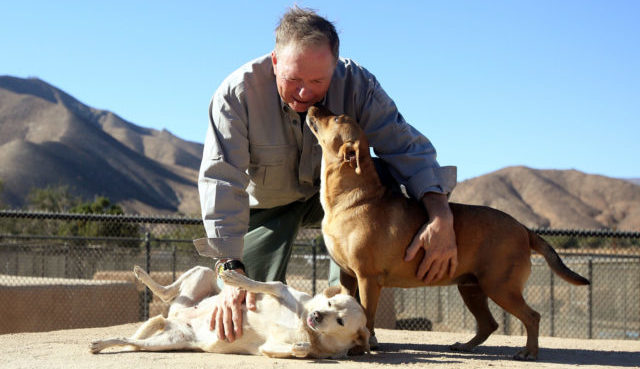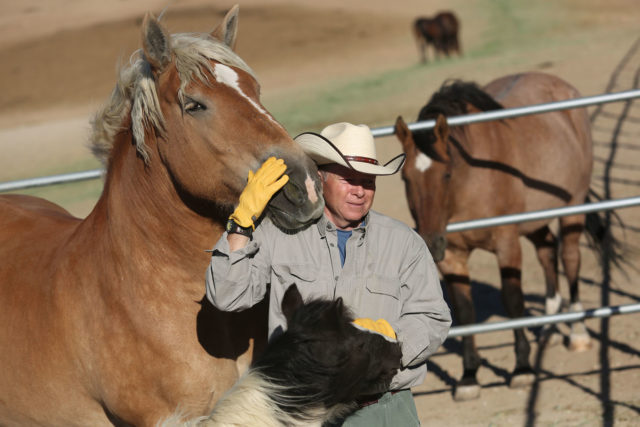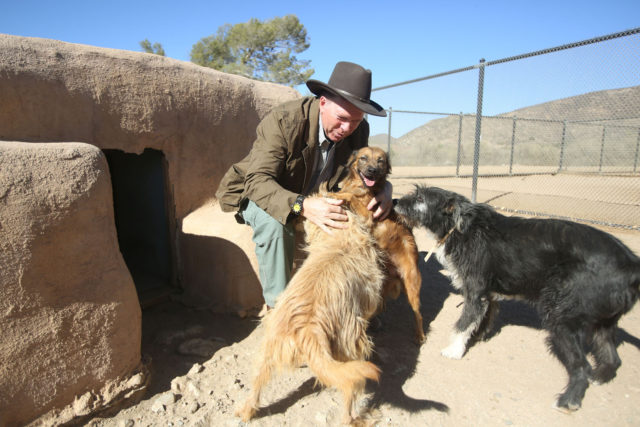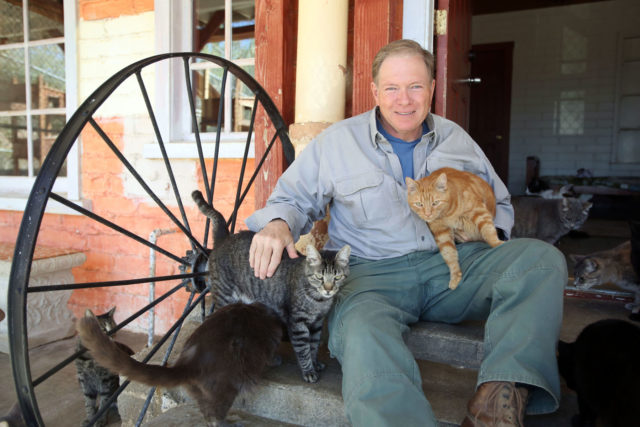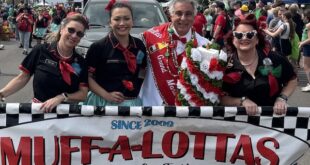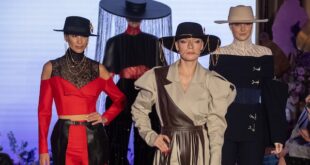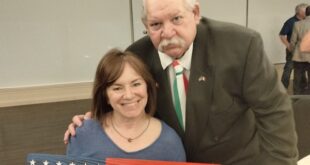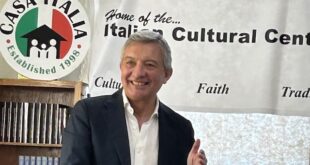Arriving in Hollywood in 1979 to pursue his dream of becoming an actor, Leo Grillo’s life was transformed by a dream of a completely different sort.
The majestic creature came to Leo Grillo in dream after dream after dream. Not that those visions meshed exactly with his occupational dream at the time. It was 1979, and Grillo, the new kid in town, was working hard to get his Hollywood career off the ground.
Then came a plot twist straight out of Tinseltown. For no specific reason, Grillo embarked on a road trip to Bakersfield, some 100 miles north of L.A. During that journey, he spotted a black Doberman, abandoned, walking in a forest — the beast he’d seen in his sleep.
Grillo felt clairvoyance crystallize into resolve as he gathered the animal to his side and they returned to his apartment, where he already had three pet cats waiting for him. He named the dog Delta, and today the canine’s spirit lives on in the animal shelter Grillo founded and named after him: D.E.L.T.A. Rescue, standing for Dedication and Everlasting Love to Animals.
Today, Grillo’s “super sanctuary” is considered the largest no-kill, care-for-life animal facility in the world, sitting on 115 acres in the high desert area of Los Angeles. Grillo says as many as 1,500 abandoned and abused animals call D.E.L.T.A. Rescue home. Along the way, he’s attracted the attention and support of celebrities such as actresses Loretta Swit and Betty White and chef Wolfgang Puck.
Lou&A spoke with Grillo about how his work with animals traces back to childhood — and how those roots in turn were fed by a heritage that taught him strength and sensitivity.
Lou&A: Tell us about your Italian background.
Leo Grillo: My mother’s father, Luigi deLucia, was a farmer from Casino, Italy. He left in 1917 and settled in Stoneham, Mass. Her mother was from Italy, too. Mom is 93 and a widow. My father’s father was born in Prata De Principata Ultra in the Avellino province in Italy. Three brothers came here; two settled in Brooklyn, and my grandfather, Pasquale Grillo, in Lawrence, Mass.
I sent a photographer to Prata a few years back and had him spend a month shooting the village. A lot of streets are named Grillo; there are catacombs with Grillo relatives and even a bombed-out Grillo palace.
L&A: A family palace?
LG: On the Bay of Napoli there is a 51-room Villa Grillo, which belonged to my great-grandfather, a baron. He disowned his three sons because they left the seminary and came to America. I’m glad they did! [Laughs.]
L&A: Now this is getting really good. Tell me more.
LG: Pasquale and his two brothers were in the seminary in Prata, and my great-grandfather gave large chunks of land to the church to accept his boys into the priesthood. My grandfather was in there eight years: Ten years and you’re a priest. Well, they were having an Easter Sunday Mass with the bishop, and the seminary students were altar boys. One of the brothers took ink and poured it in the holy water; the nuns were wearing all white as they came down the processional. They blessed themselves, and suddenly there was ink all over the place. The brothers see that, and of course they start laughing and laughing.
The bishop gave them the eye; the monsignor gave them the eye. Everyone looked at them; everyone knew that they did it. They couldn’t stop laughing. So they walked straight down the aisle of the church, out the doors, straight to the docks and sailed to America — without anything. They knew their father was going to kill them. He gave Villa Grillo to the head of the housekeeping staff and her husband with the stipulation that any Grillo descendant who came to visit could stay in one room. Now the villa belongs to the state. If all that hadn’t happened, I wouldn’t even be here. [Laughs.]
L&A: Hard to transition out of that one! So was there anything in your youth that foreshadowed the animal rescue work you do today?
LG: I was always helping injured birds, and I even operated on my goldfish to save his life once. We had a dog, and she was a sibling. I learned so much from Frosty, a lab mix. She slept on my bed, head on the pillow. To me, every dog I meet is Frosty, even yours. That’s why I save them from abandonment. Today I do not adopt out our animals. I keep them for life because people have been cruel to them already, and I can keep my promise to protect them from any more harm.
L&A: How would you describe the way Delta changed your life?
LG: I named him Delta, the scientific symbol for change in an experiment. He changed my life because I wanted to keep him. He was my son. I lived with three cats in a small apartment that didn’t allow animals. So I had to move, find a bigger place and take Delta out for daily trips somewhere. My life revolved around his happiness. It was a killer when he got cancer in three years and died. But this rescue is his legacy. I truly believe that he guides me to this day. He wanted this, and he showed me how to do it. Nobody has ever done this and never will again. It is beyond logic — like love.
L&A: Speaking of work, you’re, of course, an actor. Are there ways you find your acting life and your rescue life bleeding together or informing each other?
LG: With the way Hollywood has gone lately, I think the animal mission saved me, not the other way around. I made my own movies because there was no time to play the Hollywood game and go on audition after audition.
L&A: You’ve been at this now for 38 years. Where are you at now?
LG: I’m now looking for ways to harness the internet to tell our story and bring in much-needed new supporters. I’m not a fast-buck artist. I want to protect the rescue’s future so people who cannot afford to donate today can do so by making a bequest now. We have a whole section dedicated to that on our website. There are tax advantages and IRS vehicles to make this good for both the donors and our animals.
Mary: Lose the red if you need to.
L&A: In the end, how do you connect your Italian heritage and the values you hold with the life you live and the example you set?
LG: Like I said, I am Italian: We live, love, eat, drink wine and protect our own to the death. My animals are my children, too — and I protect each of them in every way with my own life.
To learn more about Leo Grillo’s work with D.E.L.T.A. Rescue or to make a donation, visit deltarescue.org.
The above appeared in the May issue of the print version of Fra Noi. Our gorgeous, monthly magazine contains a veritable feast of news and views, profiles and features, entertainment and culture. To subscribe, click here.
 Fra Noi Embrace Your Inner Italian
Fra Noi Embrace Your Inner Italian


